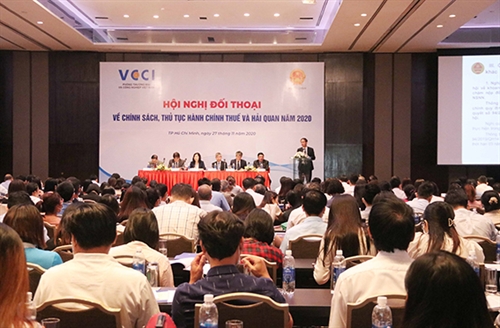Bui Duc Giang
Attorney at law and PhD in law[1]
KEY POINTS:
* A security interest may be completed not only through registration but also through the holding of the secured asset in case of a pledge or security deposit or deposit securing the return of leased property, or the taking of the asset’s possession in case of a lien;
*Priority of competing security interests over the same asset depends on the date of enforceability against third parties of those security interests or, in the absence of enforceability against third parties, on the date of their creation;
*Expenses for taking care of, taking over and realizing a pledged or charged asset rank before the secured creditor(s)’ claims and any surplus must be returned to the securing party.
When a bank takes security over assets of a company or an individual, its concern is not only that such security will be effective but also that the security interest will take priority over other parties’ interests in the assets concerned. Civil Code 91/2015/QH13 dated November 24, 2015 (with effect on January 1, 2017) (the Civil Code), contains various new rules on priorities that are completed by its implementing texts and specialized legislations. This article is confined to an overview of the applicable rules contained in the general law.
Types of security
Article 292 of the Civil Code provides for a list of nine security interests including pledge, charge, security deposit, deposit securing the return of leased property, escrow deposit, reservation of title, guarantee, reputation-based security, and lien.
The term “charge” under Vietnam’s law is similar to a “fixed charge” under English law. A charge over circulating assets under Vietnam’s law is similar to a floating charge under English law. Mortgages that entail transfer of ownership over the secured assets are not recognized by Vietnam’s law.
Under Article 346 of the Civil Code, a lien means the right of a creditor currently lawfully holding an asset being the subject matter of a bilateral contract (the lienee) to retain the asset in case the debtor (the lienor) fails to perform an obligation or improperly performs the obligation. It is created by operation of law and does not require registration to be effective. However, it may not be extended by contract.
With regard to reservation of title, pursuant to Article 331 of the Civil Code, under a purchase and sale contract, the ownership over an asset may be reserved by the seller until the obligation to make payment is fully discharged. Unfortunately, the rules on reservation of title in the Civil Code are controversial since they are particularly unfavorable for creditors.
Validity and enforceability of security interests
Enforceability against the parties
The Civil Code draws a distinction between enforceability against the parties to the security contract (validity against the parties) and enforceability against third persons (enforceability against third parties).
Under Article 310.1, “a contract of pledge of property shall be valid as from the time it is entered into, unless otherwise agreed by the parties or otherwise provided by a law”.
Likewise, pursuant to Article 319.1, “a contract of charge of property shall be valid as from the time it is entered into, unless otherwise agreed by the parties or otherwise provided by a law”.
As such, the order to determine the time at which a contract of pledge or charge shall become enforceable against the parties is:
*the time provided by a law, if any;
*the time agreed by the parties in such security contract, if any; or,
*the time of entering into the security contract.
For the purpose of those articles, a law shall mean an act passed by the National Assembly of Vietnam.
For instance, under Article 122.1 of Law 65/2014/QH13 on Housing dated November 25, 2014, revised in 2019 and 2020, a charge over a house shall take effect from the date of notarization or authentication. Likewise, pursuant to Article 188.3 of Land Law 45/2013/QH13 dated November 29, 2013, revised in 2018, a charge over a land use right shall take effect as from the date of registration with the land registration office. Article 39.2 of Vietnam Maritime Code 95/2015/QH13 dated November 25, 2015, revised in 2018, also provides that a charge of a maritime ship shall take effect from its registration in the National Maritime Ship Register.
 |
| Carrying out transactions at Hai Phong-based branch of BaoViet Bank __Photo: Tran Viet/VNA |
Enforceability against third parties and its effects
Pursuant to Article 297 of the Civil Code, “a security interest shall be enforceable against a third person as from the date of registration or from the time where the secured party obtains or takes possession of the secured property”.
As such, the usual way of perfection of a security interest is its registration with the relevant security registration office. Article 319.2 of the Civil Code provides that “a charge of property shall be enforceable against third parties as from the time of its registration”. Likewise, a pledge of real estate (which is not possible for the time being in absence of specific provisions of specialized laws expressly permitting creation of this type of security) shall be enforceable against third parties from the time of its registration. Under Article 331.3 of the Civil Code, a reservation of title shall become enforceable against third parties from the time of its registration.
Under Article 310.2 of the Civil Code, a pledge of property other than real estate “shall be enforceable against third parties from the time where the pledgee holds possession of the pledged asset”.
Under Article 23.3 of Government Decree No. 21/2021/ND-CP dated March 19, 2021, providing for the implementation of the Civil Code on security interests with effect from May 15, 2021 (Decree 21), a pledge of property, security deposit or deposit securing the return of leased property shall be enforceable against third parties from the date on which secured parties hold possession of the secured asset. This approach is appropriate as security deposit or deposit securing the return of leased property are indeed two variants of pledge. This article further indicates that “holding of the secured asset” is construed as the fact that the secured party directly manages, supervises or controls the secured asset or the fact that another person manages the secured asset as agreed [by the parties] or by operation of law but the secured party may still supervise or control such asset.
Pursuant to Article 23.4 of Decree 21, in case the secured asset is given to another person for management, the security interest shall become enforceable against third parties as from the time:
*the secured party holds the secured asset;
*the person managing the asset directly receives it from the securing party;
*the security contract takes effect in case another person is directly managing the asset which is the object of the security.
Under Article 23.5 of Decree 21, an escrow deposit shall be enforceable against third parties as from the time where the asset which is the object of the security is sent to an escrow account held at the credit institution where the escrow deposit is made. This provision appears not be in line with Article 297 of the Civil Code mentioned above.
A lien shall be effective against third parties from the time when the lienee takes possession of the asset (Article 347.2 of the Civil Code).
Under Article 297.2 of the Civil Code, once a security interest becomes enforceable against third parties, the secured creditor may exercise the right to recover the secured property[2] and have priority for payment. Priority for payment is analyzed in the following sections.
Priority of competing security interests
General provisions
Article 308.1 of the Civil Code deals with the particular case of competition amongst security interests created over the same assets. It provides that in case an asset is used to secure the performance of several obligations, the order of priority for payment to the secured creditors shall be determined as follows:
* Where all the security interests are enforceable against third parties, priority shall be determined according to the order in which enforceability against parties was established;
*Where certain security interests are enforceable against third parties while others are not, the obligations secured by the security interests which are enforceable against third parties shall be paid first;
*Where all the security interests are not enforceable against third parties, priority shall be determined according to the order in which the security interests were created.
As such, priority depends first on the date of enforceability against third parties of the security interests and, in absence of enforceability against third parties, on the date of their creation.
Those priority rules apply to the case in which an asset is used to secure more than one loan. This case is specifically dealt with in Article 296 of the 2015 Civil Code under which:
* An asset may be used to secure the performance of several obligations if, at the time of establishment of the security transaction, the value of such asset is greater than the total aggregate value of the secured obligations, unless otherwise agreed by the parties or otherwise provided by law.
* In case an asset is used to secure several obligations, the securing party must notify the subsequent secured creditors that the secured asset is being used to secure other obligation(s). The grant of security on each occasion must be made in writing.
* Where the asset must be realized in order to pay one obligation that has fallen due and payable, the remaining obligations that have not yet fallen due and payable shall also be deemed to become due and payable and all the secured creditors may take part in the realization of the asset. The secured creditor that has provided notice of realization of the asset shall be responsible for realizing the asset, unless otherwise agreed by all the secured creditors. If the parties wish to continue to fulfill the obligations that have not yet fallen due and payable, they may agree that the securing party will use other property to secure them.
It is noteworthy that the priority rules provided in Article 308 of the Civil Code concern only priority for payment of competing secured creditors over the same asset. In other words, they determine which creditors will be paid in priority in case this asset is realized (e.g. by way of sale to a third party). In case of a lien, the lienee’s right to retain the asset until payment is not subject to those rules since there is no priority for payment between the lienee and the bank that has taken security over the asset concerned (the value of the asset is not distributed between the lienee and the bank).
If an asset is subject to an agreement on reservation of title, the buyer may neither pledge nor charge it in favor of its lender as Articles 309 and 317.1 of the Civil Code require that the pledged or charged property be the property of the securing party. Therefore, in principle, there will not be conflicts of in term of priority between the seller and the bank. It should be noted that the Civil Code and Decree 21 fail to address priority between a seller under a reservation of title and a bank taking security over a receivable that the buyer has acquired after (unlawfully) re-selling the asset to a third party.
Priority agreement
Under Article 308.1 of the Civil Code, it is possible for the secured creditors to agree among themselves to vary the priority conferred by law. This is achieved by a contract between the parties by way of a priority agreement by which the order of priorities of the security interests is altered. However, this text further indicates that the subrogatee of a right to priority payment shall only be entitled to priority payment within the scope of the security interest of the subrogator. If there are more than two secured creditors, this provision is understandable as it will protect the rights of the creditor (s) who are not parties to such priority agreement. However, if all the secured creditors have entered into a priority agreement, it would be fairer to allow them to agree that the proceeds of realization of all security interests should be applied in a particular way, irrespective of who is technically entitled thereto.
Payment of proceeds of realization of pledged or charged assets
Article 307 of the Civil Code deals with the fate of proceeds of realization of pledged or charged assets as follows:
* Proceeds of realization of a pledged or charged asset, after payment of expenses for taking care of, taking over[3] and realizing such asset, shall be paid according to the order of priority mentioned above.
* Where the amount of proceeds of realization of the pledged or charged asset after payment of expenses for taking care of, taking over and realizing such asset is greater than the value of the secured obligation(s), the difference must be paid to the securing party.
* Where the amount of proceeds of realization of the pledged or charged asset after payment of expenses for taking care of, taking over and realizing such asset is smaller than the value of the secured obligation(s), the unpaid portion of the obligation(s) shall be deemed to be an unsecured obligation, unless the parties have agreed on the attachment of additional secured asset. The secured lender may request the borrower to perform the unpaid portion of the obligation(s).
The above principles will apply equally to the case where an asset is used to secure more than one loan and to the case an asset is used to secure one single loan. The basic rule is that expenses for taking care of, taking over and realizing the pledged or charged asset rank first and the secured creditor(s) will have priority over the proceeds while any surplus must be returned to the securing party.
Those principles will also apply to the case of appropriation of the secured asset by the secured creditor in lieu of payment of the secured obligation[4].
In light of the above, it can be inferred that the Civil Code’s provisions relating to priorities still leave much to be desired. Although Decree 21 has tried to complete the general legal framework on priorities of the Civil Code, some of its new rules are contradictory with those of the Civil Code. Therefore, there is still room for improvement to create a clearer and more attractive legal framework on priorities.-









